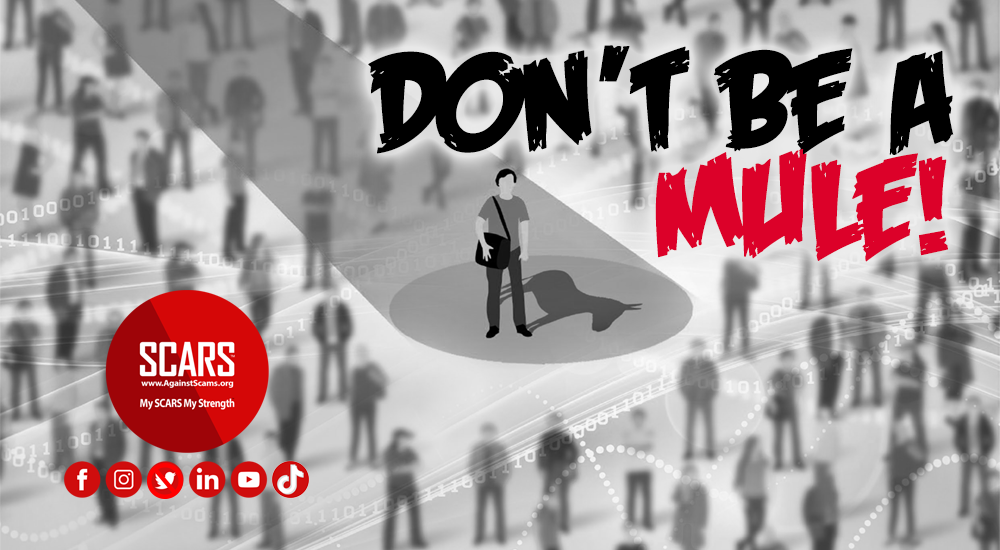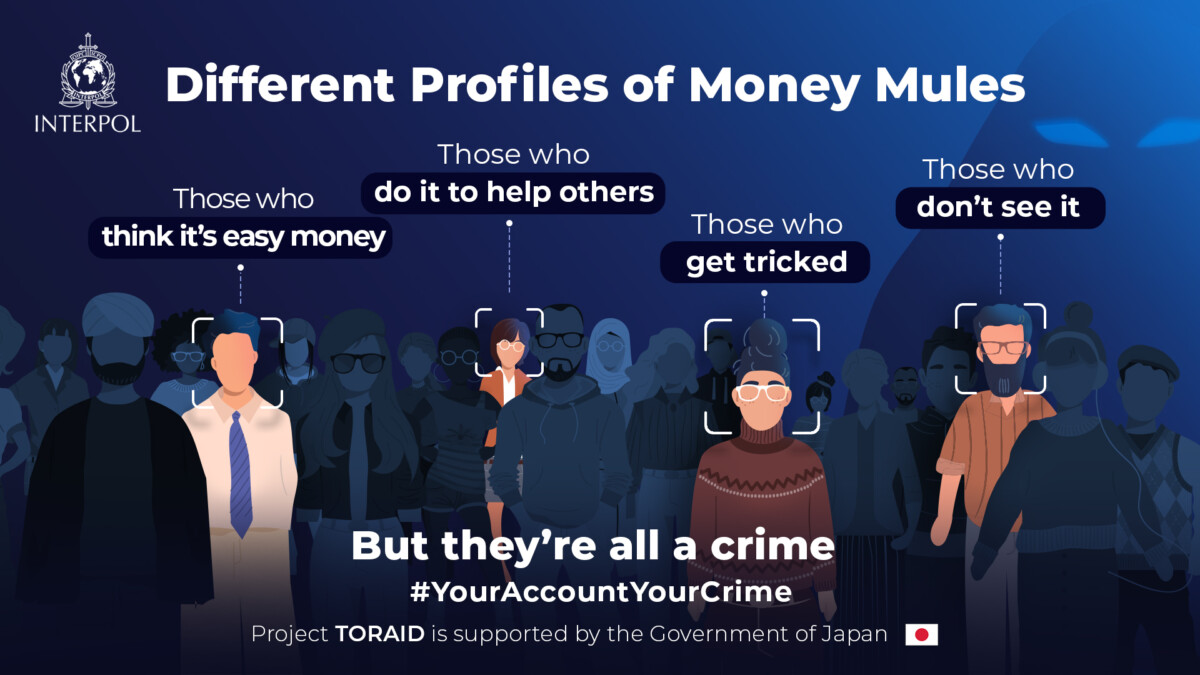Money Mules – What Are The Risks?
Law Enforcement is changing their attitude about Money Mules! You cannot hide – they will come for you if you do not report this first!
#YourAccountYourCrime – Don’t Become A Money Mule!
Criminal organizations often rely on money laundering to conceal the origin of their illicit funds. The aim is to make funds appear legitimate and at the same time distance criminal groups from prosecution. This action also makes it difficult for law enforcement to trace money trails.
Money mules are people who knowingly or, in certain cases, unknowingly help criminal organizations launder their illicit profits. They do this by providing their own accounts to help receive and transfer fraudulent funds, thereby “legitimizing” it.
#YourAccountYourCrime
To highlight this threat, INTERPOL is launching its #YourAccountYourCrime campaign. This two-week campaign (10-26 August 2022) will raise awareness of money mules and provide tips on how to stay safe.
How are money mules recruited?
Criminals recruit money mules in various ways. For example, some individuals are lured with the promise of financial gain or they receive a commission for their service. In other cases, they are motivated by trust or are solicited via online scams. Others provide support because they believe they have a romantic relationship with the individual who is asking for help.
The #YourAccountYourCrime campaign focuses on four key ways criminal organizations recruit money mules:
- Job scams: you are contacted about a new job without having applied to any position and where the “employer” doesn’t provide any details about their company;
- Romance scams: you are contacted online via social media or a dating platform;
- Investment scams: you receive a message to make big returns on an investment relatively easily;
- Impersonation scams: calls or messages from individuals pretending to be from courier companies or government agencies asking you for your personal/bank details.
Tips To Help You Avoid Becoming A Victim
- Be suspicious of anyone who wants to use your bank account to receive and forward money.
- Never give your financial details to someone you don’t know and trust.
- If you suspect you’ve been used as a money mule, cease all communications and report it to your bank and the authorities.
What Are The Implications?
The #YourAccountYourCrime campaign will highlight the fact that you may face prosecution by acting as a money mule. “If you use your account, it could also become your crime!”
This means that you may still be found complicit as part of a money-laundering scheme even if you weren’t aware of how your bank account was being used.
Project TORAID
Project TORAID – fighting transnational financial crime in Southeast Asia. This awareness campaign comes under Project TORAID. The overall goal of the TORAID initiative is to strengthen global safety and financial security within Southeast Asia. Amongst key activities, this project supports member countries in identifying and investigating illicit financial flows.
If You Are Or Were A Mule?
If you think you have been used by criminals to funnel or launder money follow these steps immediately – you have NO TIME to waste!
- Contact a local criminal defense attorney to explore your options and rights.
- Report to your local police – tell them EVERYTHING. Have your attorney with you to help.
- Report any misuse of your financial accounts to the financial institution or bank.
- Make sure you have zero further contact with the criminals.
- Join a professional online crime victims’ support group (such as with SCARS) – this may help your defense if it proves necessary.
- Find a local trauma counselor or therapist.
If you do not do these things, the police will eventually show up at your door and you may be arrested and face prosecution.
To learn more about Money Mules & Money Laundering Article Catalog
To Learn More Also Look At Our Article Catalogs
Scam & Crime Types
More SCARS
- ScamsNOW Magazine – ScamsNOW.com
- ContraEstafas.org
- ScammerPhotos.com
- AnyScam.com – reporting
- AgainstScams.org – SCARS Corporate Website
- SCARS YouTube Video Channel












They should do something to make Google and such sites to get the ones that advertise as they have all the means to find them